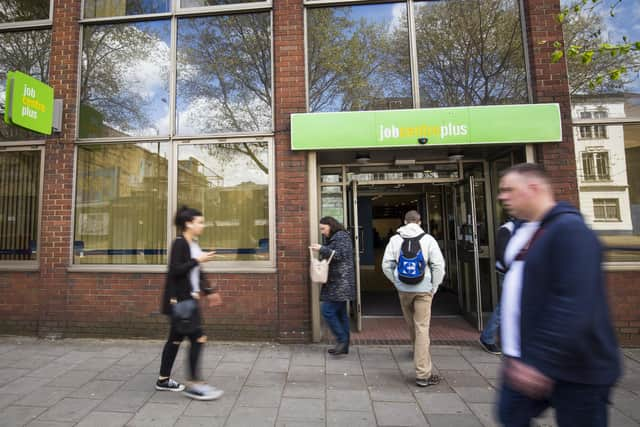the latest KPMG and REC, UK Report on Jobs: North of England survey highlighted worsening jobs market conditions during May as permanent staff appointments and temporary billings both fell.
Permanent placements fell for a third month running and at the sharpest rate since June 2020, while temp billings posted the first drop since last November. Jobs vacancy growth also slowed, while there was a pickup in staff availability amid redundancies. Nevertheless, wage pressures remained historically elevated, with the North of England registering the strongest rates of pay increases in May.
The KPMG and REC, UK Report on Jobs: North of England is compiled by S&P Global from responses to questionnaires sent to around 150 recruitment and employment consultancies in the North of England.
Warren Middleton, Office Senior Partner at KPMG in Manchester, said: “The latest findings reflect mutual hesitation from both businesses and prospective candidates here in the North as inflationary pressures continue to bite for all. This has resulted in the sharpest drop-off in permanent appointments across the region since the early stages of the pandemic back in June 2020, with temporary placements also now in decline for the first time in six months.
“We are seeing some green shoots, however, with the availability of those looking for permanent roles on the rise for a third consecutive month. Both parties will be hoping supply and demand marry up soon to help reverse the recent downturn before it gets any worse.”
Downturn in permanent placements worsens in May
The latest survey data revealed a third consecutive decline in the number of permanent placements by recruitment agencies across the North of England in May. Furthermore, the rate of decline was sharp and the quickest in almost three years.
Hesitancy among both clients and candidates contributed to the reduction, anecdotal evidence showed.
All four monitored English regions registered a drop in permanent staff appointments, with the quickest reduction seen in London.
Surveyed recruiters in the North of England registered the first decline in billings received from the employment of temporary workers in six months during May, as evidenced by the respective seasonally adjusted index dipping into sub-50.0 contraction territory. This contrasted with a sustained, albeit only marginal, expansion for the UK overall. Both London and the South of England saw further upticks in May. The strongest decrease was noted in the Midlands.
Job vacancy growth across the North of England slowed during May, with job openings for both permanent and temporary positions rising at softer rates when compared to April.
Permanent vacancy growth, albeit still sharp, slowed to a 27-month low. Meanwhile, after accelerating in the prior month, the latest survey data pointed to a modest rise in demand for fixed-term staff that was the weakest since September 2020.
Permanent staff supply improves for third successive month
The availability of candidates for permanent roles in the North of England continued to improve during May, marking a third successive month in which supply has risen. The uplift in availability was strong and only marginally weaker than March’s 27-month record. Redundancies was cited as a factor boosting candidate numbers.
All four monitored English regions saw an uptick in permanent staff supply, the sharpest of which was recorded in London.
Amid reports of a lack of work across the market, layoffs and an uplift in applications at recruiters, May survey data signalled the fastest increase in temporary candidate numbers since December 2020 across the North of England. The expansion was the strongest seen of the four monitored English regions for a third consecutive month.
Permanent salary inflation remains historically steep
Salaries awarded to new permanent joiners in the North of England continued to rise at a steep pace in May, with the rate of inflation even ticking slightly higher since April. In fact, compared to the other three monitored regions, the rise in pay across the North of England was by far the strongest. The softest increase was recorded in London.
According to surveyed recruiters, inflation and efforts by firms to attract highly-skilled workers drove starting salaries higher.
Recruitment consultancies across the North of England registered another sharp monthly rise in wages for temporary workers during May. The rate of increase was down only slightly from April’s seven-month high and was once again the quickest of the four monitored English regions.
Neil Carberry, Chief Executive of the REC, said: “We’ve been hearing more and more about differences between sectors in hiring rates over the past few months, and today’s data really highlights this. Permanent hiring is declining from the sugar rush of 2022, but the story can vary widely across different businesses as their economic outlook remains unclear.
“For hiring businesses, greater candidate availability will help resolves shortages, though inflation means wage growth remains high. In addition, candidates may have to change sectors in their job search, so there is not an automatic increase in candidate supply for shortage roles. All of this puts a premium on getting our response right as businesses – looking at skills development and widening the net of places that firms look for candidates. Recruiters can help with this.
“Government can play its part, too. Proper reform of the Apprenticeship Levy to deliver more flexible and effective training options could help speed sector-to-sector transfers, as could greater use of temporary working to help candidates get a start. Regulation also needs to treat temporary work as a positive option – not a second choice.”







